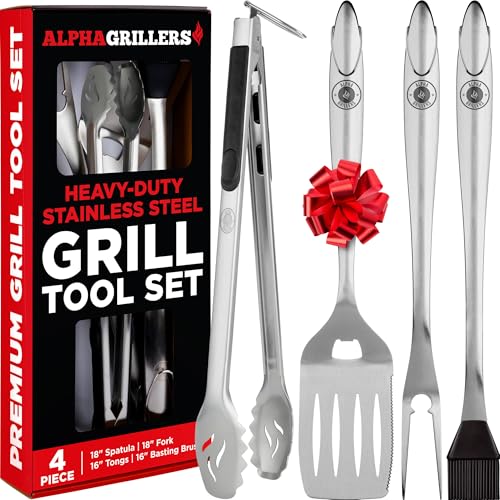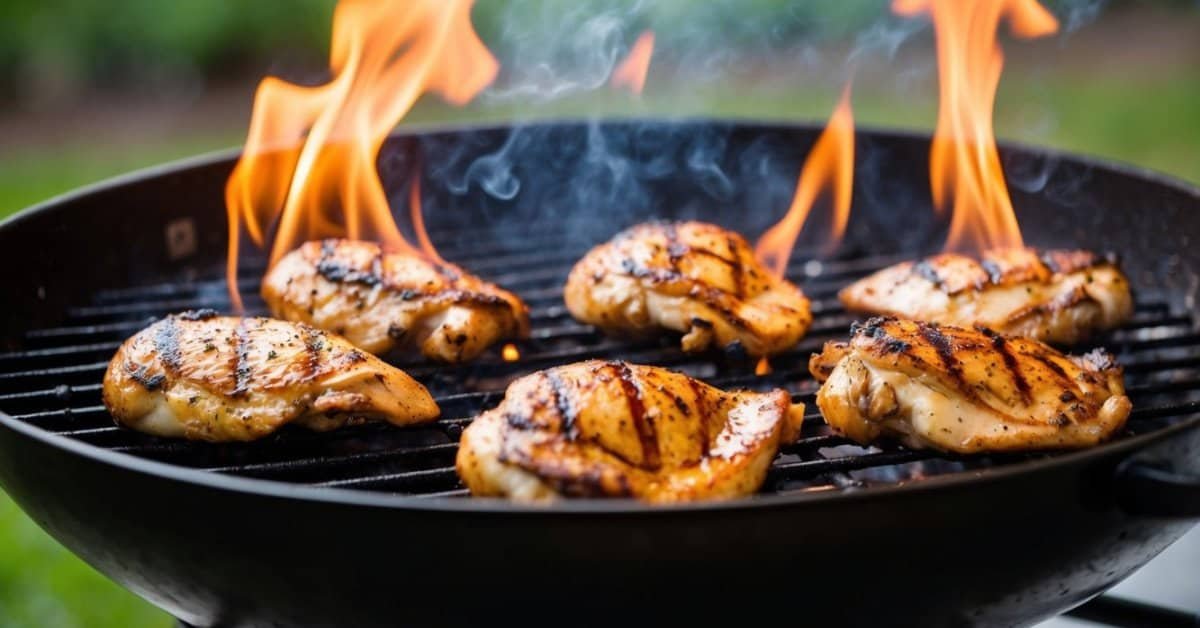When I’m prepping for a barbecue, one of the simplest yet most important decisions is choosing between metal and wooden skewers. It might seem minor, but the type of skewer you use can really impact your grilling experience.

Metal skewers offer durability and reusability, perfect for frequent grillers. On the other hand, wooden skewers are lightweight and easy to handle, making them a favorite for casual cooks. In this article, I’ll dive into the pros and cons of each to help you decide which skewer is right for your next cookout.
Overview of Metal and Wooden Skewers
Choosing the right skewer enhances your grilling experience. Both metal and wooden skewers offer unique benefits for different cooking styles.
Material Composition
Metal skewers are typically made from stainless steel or aluminum, providing strength and resistance to rust. Their sturdy construction allows repeated use without wear. Wooden skewers, often crafted from bamboo or hardwood, offer a natural, lightweight option. They are usually single-use but can be soaked in water before grilling to prevent burning.
Common Uses
Metal skewers excel in high-heat grilling, suitable for meats like beef, chicken, and vegetables. Their durability supports heavier ingredients without bending. Wooden skewers are ideal for delicate items such as shrimp, fruit, and small vegetables. They are perfect for appetizers and kebabs, especially for outdoor events where convenience is key.
Advantages of Metal Skewers
Metal skewers provide several benefits that enhance the grilling experience. These advantages make them a top choice for both amateur and seasoned grillers.
Durability
Metal skewers, usually made from stainless steel or aluminum, offer exceptional durability. They resist bending and breaking, ensuring they last through numerous grilling sessions. Unlike wooden skewers, metal ones do not splinter or degrade over time, maintaining their integrity even under high heat.
Reusability
Metal skewers excel in reusability, allowing for repeated use without wear. Their robust construction means they withstand regular cleaning and handling without losing functionality. This makes them more cost-effective compared to single-use wooden skewers, providing long-term value for frequent grillers.
Heat Conductivity
Metal skewers have superior heat conductivity, promoting even cooking of ingredients. They transfer heat efficiently, ensuring that meats and vegetables cook uniformly on all sides. This property reduces the risk of undercooked or overcooked spots, resulting in consistently delicious grilled dishes.
Advantages of Wooden Skewers
Wooden skewers provide practical benefits that cater to everyday grilling needs.
Affordability
Wooden skewers are budget-friendly, often priced around $5 for a pack of 100. This low cost allows me to purchase them in bulk without breaking the bank. Their disposable nature eliminates the need for maintenance expenses associated with metal skewers.
Availability
Wooden skewers are easily found in most grocery stores and online marketplaces. I can quickly grab them from the kitchen utensil aisle or order them with a few clicks. Their widespread availability ensures I always have them on hand for impromptu barbecues.
Ease of Use
Using wooden skewers is straightforward and hassle-free. They require no cleaning, saving me time after cooking. Their lightweight design makes handling and threading ingredients simple, perfect for assembling appetizers or kebabs effortlessly.
Potential Drawbacks
While both metal and wooden skewers offer benefits, they come with their own set of challenges.
Metal Skewers
Metal skewers have a higher initial cost, making them less affordable than wooden options. They require thorough cleaning after each use, increasing maintenance efforts. Metal conducts heat efficiently, causing skewers to become excessively hot and necessitating protective gloves when handling. Additionally, their weight may not suit recipes that involve lightweight ingredients.
Wooden Skewers
Wooden skewers are single-use, contributing to environmental waste. They can easily splinter, risking food contamination. At high temperatures, wooden skewers may burn or char, altering the flavor of the food. Their disposable nature means they’re not cost-effective for frequent grilling compared to reusable metal skewers.
Choosing the Right Skewer for Your Needs
I evaluate several factors to determine whether metal or wooden skewers suit my grilling requirements.
Grilling Frequency
- Metal Skewers: Best for regular grilling due to their durability and reusability.
- Wooden Skewers: Ideal for occasional use, offering a disposable and affordable option.
Type of Food
- Heavier Ingredients: Metal skewers support larger pieces like chicken breasts and vegetables without bending.
- Delicate Items: Wooden skewers handle lighter foods such as shrimp and fruits efficiently.
Maintenance and Convenience
- Metal Skewers: Require thorough cleaning after each use but last longer.
- Wooden Skewers: No cleaning needed; simply dispose of them after grilling.
Environmental Impact
- Metal Skewers: Reusable, reducing long-term waste.
- Wooden Skewers: Single-use, contributing to environmental disposal concerns.
Cost Considerations
I balance the initial investment against long-term use.
- Metal Skewers: Higher upfront cost but more cost-effective over time.
- Wooden Skewers: Low initial cost, perfect for budget-friendly grilling sessions.
| Factor | Metal Skewers | Wooden Skewers |
|---|---|---|
| Durability | Durable and reusable | Single-use |
| Cost | Higher initial cost | Budget-friendly |
| Maintenance | Requires cleaning | No maintenance |
| Environmental Impact | Eco-friendly | Generates waste |
| Suitable Foods | Heavier and larger | Delicate and small |
By considering these aspects, I select the skewer that best matches my grilling needs.

Conclusion
« How to Grill a Whole Turkey on a Charcoal Grill: Step-by-Step Guide
Winterizing Your Grill: Step-by-Step Guide to Protect Your BBQ »
Deciding between metal and wooden skewers really boils down to how you like to grill. I find metal skewers are perfect for my regular barbecues because they’re durable and last a long time. They handle heavy ingredients without a hitch, which is a big plus for me. On the flip side wooden skewers are my go-to for quick and easy appetizers. They’re lightweight and super convenient, especially when I’m hosting a casual get-together. Each type has its own perks so it’s all about what fits your cooking style best. Whatever you choose enjoy your grilling adventures and the delicious dishes that come with them!















